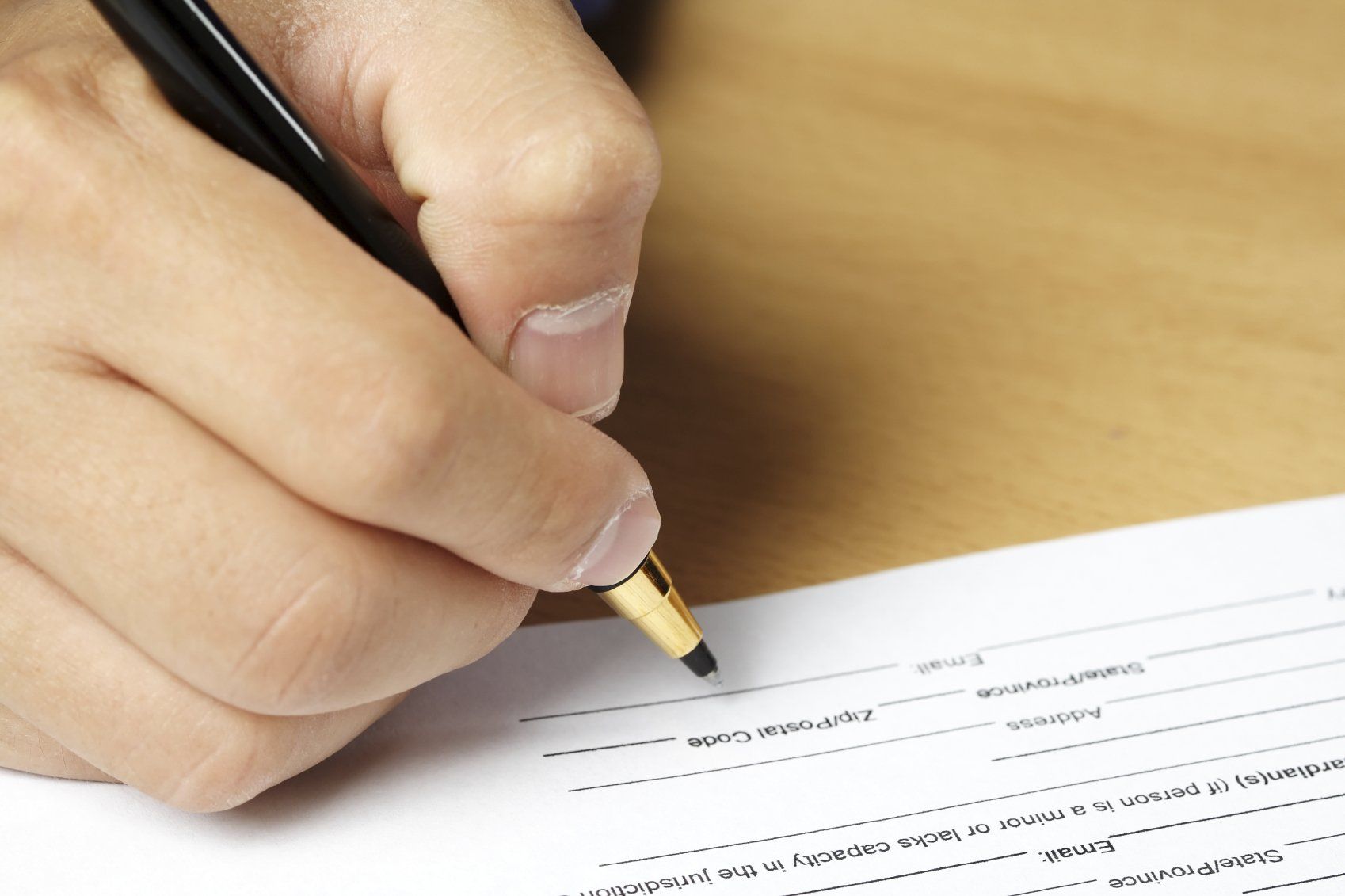What Is Power Of Attorney In New York?
Robert Howe • April 2, 2025
This is a subtitle for your new post

What is a Power of Attorney in New York?
A Power of Attorney
(POA) is a legal document that allows you to appoint someone you trust—called your agent or attorney-in-fact—to act on your behalf in financial, legal, or other personal matters. In New York, a properly executed POA is a powerful tool for managing your affairs, especially if you become ill, incapacitated, or simply need assistance with day-to-day financial tasks.
Types of Power of Attorney in New York
Durable Power of Attorney
Remains in effect even if you become mentally incapacitated.
Commonly used for long-term financial and estate planning.
Non-Durable Power of Attorney
Only effective while you are mentally competent.
Often used for limited, short-term needs.
Springing Power of Attorney (less common in NY after 2021 law changes)
Becomes effective only upon a specified event, such as incapacity.
What Can an Agent Do With a POA?
Depending on how the document is written, your agent may be authorized to:
-Pay bills and manage bank accounts
-Buy or sell real estate
-Handle investments or insurance policies
-Deal with tax matters
-Access safe deposit boxes
-You can grant broad powers or limit your agent’s authority to specific tasks.
Legal Requirements in New York
As of the 2021 updates to New York’s POA law, the document must:
-Be signed by the principal (you), acknowledged before a notary public, and witnessed by two people
-Include statutory language to be valid under state law
-Be clear about the powers being granted and any limitations
-Your agent must also sign an acknowledgment form accepting their role.
Why a POA is Important
A Power of Attorney provides peace of mind. Without one, your family may need to go through a lengthy court process to be appointed as your guardian if you become incapacitated. A POA ensures your affairs can be managed smoothly, according to your wishes.
Creating a Power of Attorney is a critical step in your estate and financial planning. To ensure your document complies with New York law and truly protects your interests, it’s best to work with an experienced attorney.
Contact the Law Office Of Robert Howe
today to learn more about setting up a Power of Attorney tailored to your needs.

What You Need for Your House Closing in New York Closing on a home in New York is the final step in the real estate process—and it’s a big one. To ensure a smooth closing, here’s what you’ll typically need: 1) Government-Issued ID: A valid photo ID is required to verify your identity. 2) Certified Funds: Be prepared to bring a certified or bank check (or arrange a wire transfer) to cover your closing costs, down payment, and other fees. 3) Proof of Homeowners Insurance: You must show documentation that your new property is insured, effective as of the closing date. 4) Closing Disclosure Review: Buyers should review the Closing Disclosure form beforehand to confirm all costs and terms. 5) Final Walkthrough: Usually done 24 hours before closing to ensure the property is in agreed-upon condition. 6) Your Attorney: In New York, attorneys are essential at closing to review documents, manage funds, and protect your legal interests. Having these items in order helps ensure a stress-free closing and a successful transition into your new home. Got questions? We have answers at the Law Office Of Robert Howe . Contact us today!

Will or Trust in New York: Which Is Right for You? When planning your estate in New York , one key decision is whether to create a will, a trust, or both. Each tool serves a different purpose and offers unique benefits depending on your needs. A will is a legal document that directs how your assets are distributed after your death. It also allows you to name guardians for minor children. However, wills must go through probate, a public court process that can be time-consuming and costly. A trust—such as a revocable living trust—lets you transfer assets during your lifetime for management and distribution outside of probate. Trusts offer privacy, quicker asset distribution, and can be useful if you own property in multiple states or want more control over how beneficiaries receive assets. In New York, the right choice depends on your goals, family situation, and the complexity of your estate. Consulting with an estate planning attorney can help you create a plan that protects your legacy and loved ones. If you have any estate planning questions don't hesitate to reach out to the Law Office Of Robert Howe for more information on how we can help you.

What Is a Real Estate Title Search in New York? A title search is a crucial step in any New York real estate transaction. It involves examining public records to confirm the seller’s legal ownership of the property and to identify any issues—like liens, judgments, or unpaid taxes—that could affect the title. Title companies or attorneys typically perform this search before closing. If problems are found, they must be resolved to ensure the buyer receives clear, marketable title. In New York, a clean title isn’t just peace of mind—it’s protection for your investment. Always ensure a thorough title search is part of your closing process. If you have any questions regarding a title search contact the Law Office of Robert Howe today and we will be happy to discuss the process with you.

What’s Unique About Brooklyn Real Estate? Brooklyn real estate stands out for its dynamic blend of old and new, offering everything from historic brownstones to modern luxury condos. Each neighborhood has its own distinct identity—Park Slope’s tree-lined streets contrast sharply with the artsy edge of Bushwick or the waterfront high-rises in Williamsburg. Unlike other boroughs, Brooklyn combines residential charm with urban convenience. It’s also a competitive market: limited inventory, strong demand, and rising prices make it essential to move quickly and work with experienced professionals. Whether you're buying, selling, or investing, Brooklyn real estate is as diverse and fast-moving as the city itself. Don't forget to visit Bay Ridge for restaurant row, our botanical garden on Shore Road and the Law Office OF Robert Howe with any real estate and property law questions.

Can an Attorney Represent Both Buyer and Seller in a New York Real Estate Transaction? In New York, while it's legally permissible for an attorney to represent both the buyer and the seller in a real estate transaction, such dual representation is generally discouraged due to the potential for conflicts of interest. Understanding Dual Representation Dual representation occurs when a single attorney represents both parties in a transaction. This situation can lead to ethical dilemmas, especially if the interests of the buyer and seller diverge during negotiations. The New York State Bar Association advises that such representation should only be undertaken in "unusual and very limited circumstances" where it's clear that neither party will suffer any disadvantage . Conditions for Dual Representation If considering dual representation, the following conditions must be met: -Informed Consent: Both parties must provide informed consent in writing after full disclosure of the potential risks and implications of dual representation. -No Adverse Interests: The attorney must reasonably believe that they can competently and diligently represent both clients without any conflict of interest. -Independent Judgment: The attorney's professional judgment on behalf of one client must not be adversely affected by their responsibilities to the other client. Risks Involved Even with informed consent, dual representation carries inherent risks: -Confidentiality Issues: The attorney may face challenges in maintaining confidentiality if information from one party is relevant to the other. -Impaired Loyalty: The attorney's ability to advocate fully for each client's interests may be compromised. -Potential for Disputes: If disagreements arise, the attorney may need to withdraw from representing both parties, leaving them to seek new counsel mid-transaction. Best Practices Given these considerations, it's often advisable for buyers and sellers to retain separate legal counsel to ensure that each party's interests are fully represented and protected throughout the transaction. Have questions? Contact the Law Office Of Robert Howe today. Note: This blog post is for informational purposes only and does not constitute legal advice. Consult with a licensed attorney for advice specific to your situation.

When Should You Update Your Will in New York? Creating a will is a crucial step in ensuring your assets are distributed according to your wishes. However, life is dynamic, and circumstances change. In New York, it's essential to review and update your will periodically to reflect these changes and ensure it remains legally valid and aligned with your current intentions. Key Reasons to Update Your Will: 1) Major Life Events: -Marriage or Divorce: Entering into or dissolving a marriage can significantly impact your estate plan. New York law may automatically revoke certain provisions in your will upon divorce, but it's prudent to review and update your will to reflect your current marital status and intentions. -Birth or Adoption of Children: Welcoming a new child into your family necessitates updating your will to include guardianship designations and provisions for their inheritance. -Death of a Beneficiary or Executor: If someone named in your will passes away, you'll need to appoint new individuals to those roles. 2) Significant Financial Changes: -Acquisition or Sale of Assets: Buying or selling substantial assets like real estate or businesses should prompt a review of your will to ensure these changes are accounted for. -Inheritance or Windfalls: Receiving a significant inheritance or financial windfall may require adjustments to your estate plan to address tax implications and distribution preferences. 3) Relocation: -Moving to or from New York: Estate laws vary by state. If you relocate, it's essential to ensure your will complies with the laws of your new residence. 4) Changes in Relationships: -Estrangement or Reconciliation: Shifts in personal relationships may influence your decisions regarding beneficiaries and executors. 5) Legal and Tax Law Changes: -Updates in State or Federal Laws: Changes in estate tax laws or other relevant legislation can affect your estate plan. Regular reviews help ensure compliance and optimal tax planning. aminovlaw.com How Often Should You Review Your Will? Even absent major life events, it's advisable to review your will every three to five years. Regular reviews help ensure your estate plan remains current with your wishes and any changes in laws or personal circumstances. Updating Your Will: In New York, you can update your will by: - Creating a Codicil: This is an amendment to your existing will, suitable for minor changes. - Drafting a New Will : For substantial changes, it's often best to create a new will and revoke the old one to avoid confusion. Both methods require adherence to legal formalities, including proper witnessing. Consulting with an experienced estate planning attorney ensures your updates are valid and reflect your current intentions. Regularly updating your will is a vital aspect of estate planning. By keeping your will current, you ensure that your assets are distributed according to your wishes and reduce the potential for disputes among beneficiaries. Consult with a qualified estate planning attorney in New York to assist you in reviewing and updating your will as needed. If you have any questions you can always contact us at the Law Office Of Robert Howe. Note: This blog post is for informational purposes only and does not constitute legal advice. Consult with a licensed attorney for advice specific to your situation.

Do You Need a Health Care Proxy in New York? Yes—if you want someone you trust to make medical decisions for you if you're ever unable to do so, a Health Care Proxy is essential in New York. A Health Care Proxy is a legal document that allows you to appoint an agent (usually a family member or close friend) to make health care decisions on your behalf if you become incapacitated. Without one, important medical choices may be delayed or made by someone not of your choosing. Why It Matters: 1) Ensures your medical wishes are followed 2) Avoids family disputes during emergencies 3) Provides peace of mind for you and your loved ones 4) Every adult in New York should have a Health Care Proxy. It's a simple but powerful tool in your estate planning. Need help preparing one? Contact the Law Office Of Robert Howe today to ensure your wishes are protected.

Best Legal Practices for Refinancing in New York Refinancing your mortgage can be a smart financial move—offering lower interest rates, reduced monthly payments, or access to home equity. But in New York, refinancing is more than a simple loan adjustment. It’s a legal transaction that requires careful planning and professional oversight. Here are the best legal practices to follow when refinancing in New York: 1. Hire a Real Estate Attorney Early In New York, an attorney is often required to handle the legal aspects of a refinance. Your attorney will: -Review the new loan terms -Ensure all documents are accurate and enforceable -Coordinate with your lender, title company, and closing agent Early involvement helps prevent costly mistakes and delays. 2. Conduct a Title Search and Clear Any Issues Most lenders require a title search to confirm that you legally own the property and that there are no outstanding liens or judgments. An attorney will: -Identify title issues -Help resolve any encumbrances -Facilitate updated title insurance, if needed 3. Review Closing Costs and Disclosures Carefully Refinancing involves new fees and closing costs. Your attorney will: -Review the Loan Estimate and Closing Disclosure -Ensure all fees are clearly explained and justified -Verify that your prior mortgage is properly paid off and discharged 4. Ensure Proper Document Execution and Recording At closing, your attorney ensures: -All refinance documents are signed correctly -The new mortgage is recorded with the county clerk -Funds are properly disbursed to pay off the previous lender and cover closing costs 5. Keep Records and Monitor Post-Closing After closing, retain all documents and confirm that: -Your prior mortgage has been officially satisfied and released -Your monthly statements reflect the correct loan balance and terms Refinancing in New York is a legally sensitive process that requires attention to detail and compliance with state laws. By working with an experienced real estate attorney and following these best practices, you can protect your investment and ensure a smooth transaction. Thinking about refinancing? Contact the Law Office Of Robert Howe today for trusted legal support from start to finish.

What Is a Living Will in New York? A Living Will in New York is a legal document that allows you to express your wishes regarding end-of-life medical care in the event you become unable to communicate them yourself. It typically outlines your preferences for treatments like life support, resuscitation, and artificial nutrition or hydration. While New York does not have a specific statute governing living wills , courts generally recognize and enforce them as long as the document clearly reflects your intentions. It's often used alongside a Health Care Proxy , which appoints someone to make medical decisions on your behalf. Why it matters: A living will ensures that your healthcare choices are respected and reduces the burden on loved ones during difficult times. Need help creating a living will? Contact the Law Office Of Robert Howe today to ensure your wishes are properly documented and legally protected.

